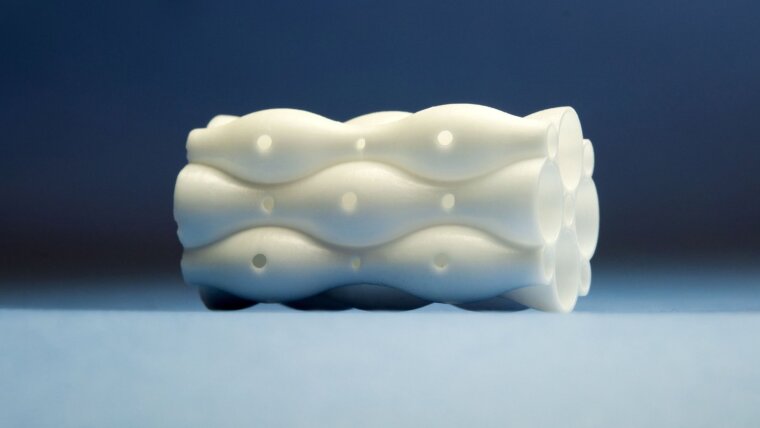
Brief description of the project
Over the course of evolution, living organisms have succeeded in establishing metabolic functions that are energy-efficient and resource-conserving, self-regulating and regenerating. These metabolic functions take place in a parallel and highly precise fashion at the closest of quarters. Crucial elements in these processes are membranes that, as cell walls or macroscopic organs, enable the transfer of substances which they often regulate in a self-learning manner.
The ‘Technische Niere’ (technical kidney) project aims to make use of these principles of nature for the first time to develop innovative technical membranes and membrane modules that are significantly better than currently existing membranes in terms of their flow rate and their selectivity, their energy consumption and their volume-specific membrane area. Additionally, the project aims to create the means to separate ‘intelligently’ (controllable membranes), optimize flow and mixture, integrate heat exchangers, and combine several separation processes and substance flows in one module. The innovative, bioinspired membrane structures will be produced in the project using additive manufacturing. They will be coated or modified and tested in regards to their separation properties.
The goal is to develop membranes for micro-, ultra-, or nanofiltration. A cooperation between the University of Applied Sciences Jena and the Fraunhofer IKTS evaluates and advances the commercial utilization in branches of ceramics manufacturing (supply of source material in defined quality) and branches of membrane manufacturing (development of innovative membranes and membrane modules with a high application potential). The additively manufactured membrane modules could be modifiable to their specific field of application in the future, e.g. for the application in the water sector, in private households, and in manufacturing enterprises in which waste waters are produced in high quantities (in the paper, textile, pharmaceutical, steel, and concrete industries, as well as in hospitals).


